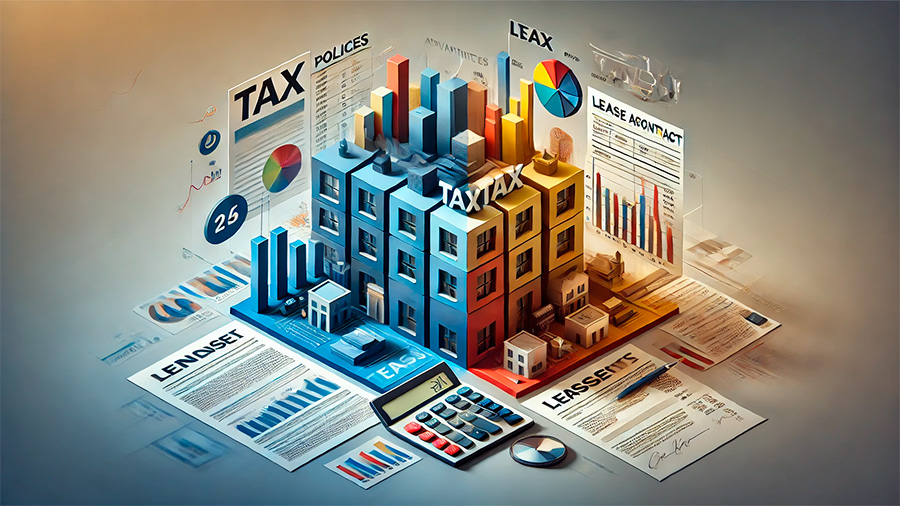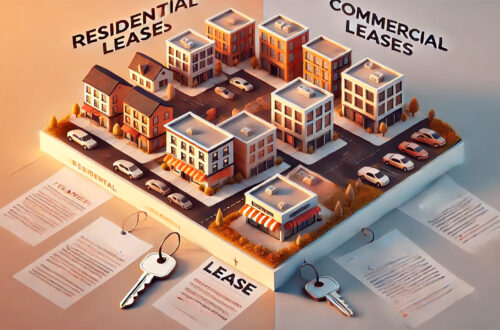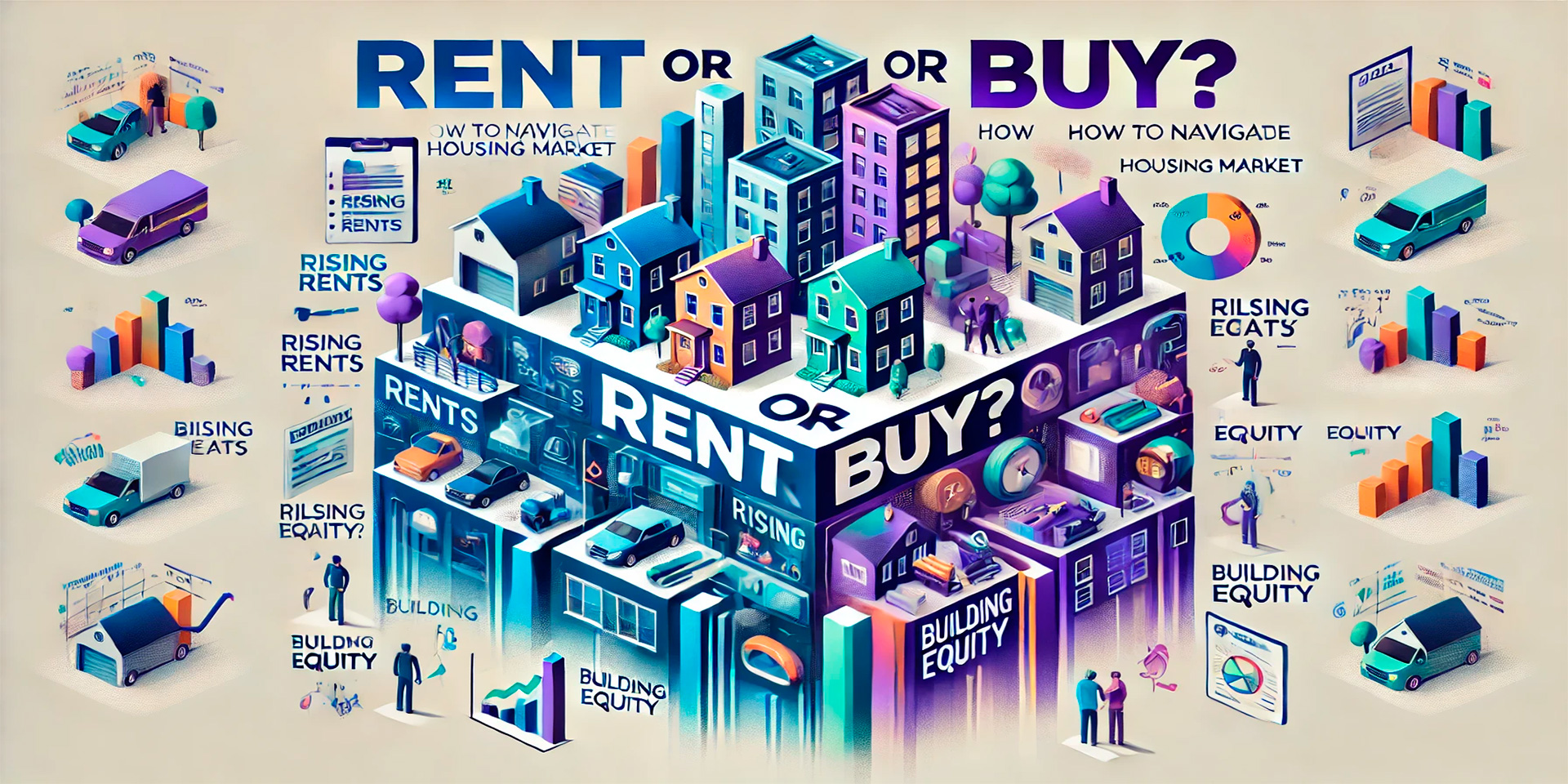Tax policies play a significant role in shaping commercial leasing decisions. Whether you’re a tenant looking to lease a new property or a landlord managing a portfolio, tax regulations can influence everything from leasing terms to overall financial strategy. Changes in tax laws at the federal, state, or local levels can affect the cost of leasing, the types of leases available, and the long-term financial implications for businesses. Understanding how tax policies impact commercial leases is essential for making informed decisions that align with financial goals.
How Tax Policies Affect Commercial Leasing
Tax policies influence various aspects of commercial leasing, from property taxes and deductions to the structure of lease agreements. For both landlords and tenants, navigating these policies can be critical in determining the overall cost of leasing and the financial benefits of property investments.
Property Taxes and Leasing Costs
One of the most direct ways tax policies impact commercial leasing is through property taxes. Property taxes are typically levied by local governments and are based on the assessed value of the property. For landlords, property taxes represent a significant expense, and these costs are often passed on to tenants in the form of higher lease rates.
In many commercial leases, particularly net leases, tenants are responsible for paying a portion of the property taxes. As property taxes fluctuate due to changes in local tax laws or reassessments of property value, tenants may see increases in their lease payments. In contrast, gross leases include property taxes in the overall rent, so landlords bear the responsibility for any tax increases. Understanding the type of lease agreement and how property taxes are structured is essential for tenants when budgeting for lease costs.
Depreciation and Tax Deductions
For landlords, tax policies related to depreciation offer important financial benefits when leasing commercial properties. Depreciation allows property owners to deduct the cost of wear and tear on the building over time, reducing taxable income. This is particularly beneficial for landlords with significant investments in commercial real estate, as it can lower their tax liability and increase profitability.
However, tax laws governing depreciation can change, affecting the timing and amount of deductions available to property owners. For example, changes to the tax code under the Tax Cuts and Jobs Act (TCJA) in the United States introduced bonus depreciation, allowing property owners to deduct a larger portion of the property’s cost in the year it was purchased. This incentivized property investment and leasing but may not be available indefinitely, depending on future tax policy changes.
For tenants, depreciation doesn’t directly impact their taxes, but it can influence the terms of lease agreements. Property owners may factor their ability to claim depreciation into lease negotiations, offering more favorable terms in exchange for long-term commitments or specific lease conditions.

Tax Incentives and Commercial Leasing
Governments often use tax incentives to encourage economic development, and these incentives can directly influence commercial leasing decisions. For both tenants and landlords, taking advantage of tax breaks can reduce costs and make leasing more attractive in certain areas or industries.
Opportunity Zones and Tax Breaks
One prominent example of tax incentives influencing commercial leasing is the Opportunity Zones program in the U.S. Established under the TCJA, Opportunity Zones offer tax benefits to investors who invest in economically distressed areas. These tax benefits include deferral or elimination of capital gains taxes for investments made in qualifying zones.
For landlords, leasing commercial properties in Opportunity Zones can provide substantial tax savings, making it an attractive option for property investment. Tenants may also benefit from reduced lease rates or other favorable terms, as landlords seek to take advantage of these tax breaks. Additionally, businesses located in Opportunity Zones may benefit from reduced taxes or incentives to expand operations in these areas.
Local and State Tax Incentives
Beyond federal tax policies, many state and local governments offer tax incentives to encourage businesses to lease or develop commercial properties in certain regions. These incentives might include reduced property taxes, tax credits for job creation, or grants for business expansion. For example, a city might offer a business tax credit for each new employee hired, encouraging companies to lease larger spaces and grow their workforce.
Businesses seeking to lease commercial properties should investigate whether there are local or state tax incentives available in the areas they are considering. These incentives can make certain regions more financially attractive, helping reduce overall leasing costs and supporting long-term growth.
Impact of Recent Tax Law Changes on Leasing Decisions
Recent changes to tax laws have had significant implications for commercial leasing decisions, affecting both tenants and landlords. Staying informed about these changes is critical for making strategic leasing decisions.
Tax Cuts and Jobs Act (TCJA) Impact
The TCJA, passed in 2017, brought about significant changes to the U.S. tax code, many of which impacted commercial leasing. For instance, the TCJA introduced limitations on interest expense deductions, which could affect how property owners finance commercial real estate. Prior to the TCJA, landlords could deduct interest paid on loans used to finance property purchases without limits. Under the new law, these deductions are capped, which could influence how landlords structure leases or finance new property acquisitions.
Additionally, the introduction of bonus depreciation allowed property owners to deduct a higher percentage of the cost of qualifying property in the year it was purchased. This encouraged investment in commercial properties, leading to an increase in new developments and leases. However, as bonus depreciation is set to phase out, landlords and tenants may need to adjust their leasing strategies as these tax benefits expire.
COVID-19 and Temporary Tax Measures
The COVID-19 pandemic led to the introduction of various temporary tax relief measures aimed at helping businesses weather the economic challenges of the crisis. Some of these measures impacted commercial leasing by offering tax credits and deductions that helped businesses manage their lease costs.
For example, in the U.S., the Employee Retention Credit (ERC) offered a tax credit for businesses that retained employees during the pandemic, helping to offset some of the costs of leasing and operations. Other temporary measures included expanded net operating loss deductions, which allowed businesses to offset current-year losses against past profits, reducing their overall tax liability.
While many of these measures were temporary, they highlight the importance of staying updated on tax policies, especially during times of economic crisis. Both tenants and landlords should remain aware of any new tax relief programs that could impact their leasing decisions.

Tax Considerations for Lease Structures
Tax policies can also influence the structure of lease agreements, with different types of leases offering varying tax advantages or disadvantages for landlords and tenants.
Triple Net Leases (NNN) vs. Gross Leases
In a Triple Net Lease (NNN), tenants are responsible for paying not only the rent but also additional expenses such as property taxes, insurance, and maintenance costs. From a tax perspective, this structure shifts the responsibility for these expenses from the landlord to the tenant, potentially lowering the landlord’s tax burden.
For tenants, triple net leases offer predictability in terms of base rent but can result in variable costs due to fluctuations in property taxes or maintenance expenses. Understanding how property taxes are assessed and paid is essential for tenants in a triple net lease, as changes in local tax policies could impact their overall lease costs.
In contrast, a Gross Lease includes all expenses in the rent payment, making it simpler for tenants but placing the responsibility for taxes and other costs on the landlord. Landlords in a gross lease scenario must be mindful of how changes in tax policy could affect their profitability, as they cannot pass these costs directly onto tenants.
Capital Leases vs. Operating Leases
Another tax consideration involves the distinction between capital leases and operating leases. Capital leases, also known as finance leases, allow tenants to treat the leased property as an asset on their balance sheet, with the ability to depreciate the property and deduct interest expenses. This can offer significant tax advantages for tenants looking to make long-term investments in commercial properties.
Operating leases, on the other hand, do not allow tenants to claim depreciation or interest deductions, as the leased property is not considered an asset. However, operating leases can offer more flexibility and may be more appealing for tenants who prefer not to assume ownership-like responsibilities.
For both landlords and tenants, understanding the tax implications of different lease structures is crucial for making informed leasing decisions that align with financial objectives.
Conclusion: Navigating Tax Policies in Commercial Leasing
Tax policies play a vital role in influencing commercial leasing decisions, affecting everything from lease structures to overall costs. Whether through property taxes, depreciation benefits, or tax incentives, both landlords and tenants must stay informed about how changes in tax laws impact their financial responsibilities and opportunities.
By understanding the tax implications of various lease agreements and staying updated on recent tax law changes, businesses can make more strategic decisions when leasing commercial properties. Whether you are a tenant looking to minimize costs or a landlord seeking to maximize the tax benefits of property ownership, effective tax planning is essential for navigating the complexities of commercial leasing in today’s economic landscape.



